- Home
- Alex Irvine
Tom Clancy's the Division
Tom Clancy's the Division Read online
GUNS APPEARED IN THE CIVILIANS’ HANDS . . .
They saw Ike’s Division gear and aimed past him as he got to the far end of the three doors, with the fire exit at his back.
Ike had a decision to make. He was far outgunned, and needed elsewhere, but he didn’t want a bunch of dead civilians on his conscience.
He backed into the fire door, shoving it open. “Get out! Everyone!” he shouted. “Now!”
The fire door opened into a small elevator atrium. On the far side was a glass door with a parking garage visible through it. “Go,” Ike urged the last of the civilians, nodding at the glass door.
The first of them put her hand on the door’s push bar . . . and the door blew out in a shower of glass.
The DPF had guessed where they were going, and gotten there before they did.
Books by Alex Irvine
TOM CLANCY’S THE DIVISION: NEW YORK COLLAPSE
BUYOUT
THE NARROWS
ONE KING, ONE SOLDIER
THE COMIC BOOK STORY OF BASEBALL
THE FAR SIDE OF THE MOON
DAREDEVIL NOIR
PACIFIC RIM
DAWN OF THE PLANET OF THE APES
BATMAN: INFERNO
BERKLEY
An imprint of Penguin Random House LLC
1745 Broadway, New York, NY 10019
Copyright © 2019 Ubisoft Entertainment. All rights reserved. Tom Clancy’s The Division logo, the Soldier icon, Ubisoft and the Ubisoft logo are trademarks of Ubisoft Entertainment in the U.S. and/or other countries.
Penguin Random House supports copyright. Copyright fuels creativity, encourages diverse voices, promotes free speech, and creates a vibrant culture. Thank you for buying an authorized edition of this book and for complying with copyright laws by not reproducing, scanning, or distributing any part of it in any form without permission. You are supporting writers and allowing Penguin Random House to continue to publish books for every reader.
BERKLEY and the BERKLEY & B colophon are registered trademarks of Penguin Random House LLC.
Ebook ISBN: 9781984803184
First Edition: March 2019
Cover art by Abrar Khan and Alexander Zwolski
This is a work of fiction. Names, characters, places, and incidents either are the product of the author’s imagination or are used fictitiously, and any resemblance to actual persons, living or dead, business establishments, events, or locales is entirely coincidental.
Version_1
To the Aurelio Diazes of the world, in recognition of the sacrifices they make so the world can be a better place
Acknowledgments
A lot of people helped shape this book along the way. I’m grateful to each and every one of them, particularly Tom Colgan, Julian Gerighty, Jacob Kroon, John Björling, Richard Dansky, Eric Moutardier, Benoit Cohen, Caroline Lamache, Julien Fabre, Clémence Deleuze, Nicklas Cederstrom, and everyone else in the narrative and transmedia teams at Massive and Ubisoft. Thanks also to the players of The Division and readers of New York Collapse for responding so warmly to April Kelleher and giving me the chance to take her story a little further.
Contents
Excerpt
Books by Alex Irvine
Title Page
Copyright
Dedication
Acknowledgments
1: Violet
2: Aurelio
3: April
4: Violet
5: April
6: Aurelio
7: Violet
8: Aurelio
9: April
10: Aurelio
11: Violet
12: April
13: Violet
14: April
15: Ike
16: Aurelio
17: Violet
18: Aurelio
19: April
20: Violet
21: Aurelio
22: Ike
23: Violet
24: Aurelio
25: Ike
26: April
27: Violet
28: Aurelio
29: April
30: Ike
31: Violet
32: Aurelio
33: April
34: Violet
35: April
36: Aurelio
37: Ike
38: April
39: Aurelio
40: April
41: Aurelio
42: Violet
43: April
About the Author
1
VIOLET
Violet squished the toe of her boot into the ground at the edge of the flooded zone. Across maybe five hundred feet of water stood the hotel where she and her friends had stayed for a while, right after the Dollar Flu—or the Green Poison, whatever you wanted to call it—had started killing everyone. The authorities had turned it into a refugee camp, under the control of the JTF. Violet didn’t know what JTF meant, but they were the people in charge of all the military stuff. Also handing out food and medicine. Everything at the hotel had been pretty stable . . . once everyone who was going to die had died, at least. Including both of Violet’s parents.
She wasn’t going to think about that right now.
“I miss that place,” she said quietly.
Her friends stood in a group around her. “Yeah,” Saeed said. “Me, too.” The Murtaugh twins, Noah and Wiley, nodded. The other three kids in the group—Shelby, Ivan, and Amelia—just looked. Ivan leaned into Amelia. She was his big sister. Sometimes Violet felt really jealous of the kids in their settlement who still had siblings and parents.
They were supposed to be out gathering herbs and greens, but instead they had decided to take a look at the hotel they couldn’t live in anymore. Government agents had brought the kids there right when the plague hit. When the worst of it had passed, Violet and the rest of the kids had helped plant a garden in its courtyard. Now all the seeds were probably drowned. Everything around here was drowned.
Still, coming down here and feeling sorry for themselves as a group had to be better than hunting around for edible greens along the overgrown parts of the National Mall, which was what they were supposed to be doing. They had to supplement the gardens already growing at the Castle. Maybe they could go to another park or something, to stay away from the Mall. A lot of the old museums and stuff seemed to be full of bad people now. The people up at the Castle would understand.
Violet was still nervous, though. She tended to follow rules more often than not, because she’d seen some bad stuff when the Green Poison swept through Washington, DC. They all had. Seven kids in their group, all between nine and eleven years old, and they’d all lost at least one parent. Not to mention siblings and friends. That was part of what brought them together. It also meant that the other people in their settlement tended to lump them together as the Kids Who Needed Looking After . . . which was irritating and kind of nice at the same time. Most of the other kids in the settlement tended to avoid them, like being an orphan was contagious.
Until the flood, they had lived with about a hundred other people in the lower floors of the Mandarin Oriental. The outside of the hotel was boarded up and fortified, and JTF soldiers stopped by often to make sure things were okay. T
hey got water from rain barrels. It was a pretty safe place, compared to some. Or at least it seemed that way, the same way it seemed that things in DC were getting a little better than they had been over the winter. Maybe that was just because it was easier to feel good about things when flowers were blooming and everything was green.
Then in early April, the river came over its banks and they had to get out.
Now they were staying up at the old Smithsonian Castle. It was pretty crowded because a lot of the people from the hotel settlement had gone there. Some of the others were supposed to be up on the other side of the Mall somewhere. A couple of groups had decided to head over toward the east side, hoping that things were more stable near the military base there. She couldn’t remember what it was called. “Saeed,” she said. “What’s the name of that army base over by the river? Not the Potomac River, the other one.”
“Joint Base Anacostia–Bolling,” Saeed answered. He always knew stuff like that. Just like he knew JTF stood for Joint Task Force, and he could tell you all about how the JTF was put together when military units and first responders died so much that all the survivors were reorganized with a new name. And he could tell you that the Dollar Flu was really smallpox that came from New York. Violet was glad Saeed was around. He was like having the Internet around even though the Internet was gone along with everything else.
Violet wondered if it really was safer over there by the Anacostia River. The problem was, she knew there were some bad guys between here and there. The whole area around the Capitol Building was a no-go zone for the kids. Everyone at the settlement agreed on that. It had been true since before the floods, and now someone warned them about it almost every morning. Like they hadn’t already survived a superplague and all the bad stuff that happened after it. Adults didn’t understand that kids could figure out how to survive just as well as adults could.
But they let the kids run in a group, pretty much anywhere they wanted within a certain limit. Today they were pushing that limit. Instead of picking greens along the edges of the Mall, they’d gone the other way. South on Seventh to Hancock Park, where the railroad tracks were above street level at the Metro stop. They followed the tracks until they sloped back down to ground level, and then disappeared at the edge of the flooded zone. Huge empty office buildings loomed around them. To the south, along the regular riverbank, tall skinny condo buildings stuck up out of the water. The river churned along out there, muddy with little whitecaps like bits of frosting. Violet turned up her collar and angled herself so the wind was at her back. Down here by the water it was chilly.
“How long do you think the water’s going to stay?” Shelby wondered. She was the youngest of them.
“I think it’s still rising,” Amelia said. “Last time we came over here, we could get closer to the hotel.”
Violet thought so, too. How much higher would it get? She thought the Castle was on higher ground, but not that much higher. Would they have to move again?
At the same time, Wiley and Noah said, “We should probably go.” They weren’t identical twins, but they looked a lot alike. They also had a lot of quirks that only identical twins were supposed to have, like getting the same idea at the same time.
“Maybe,” Amelia said. “But we really should collect some greens before we go back to the Castle.” The adults didn’t keep very close track of them most of the time, but they did expect Violet and the other kids to follow instructions.
“Yeah,” Violet said. “We can look along the part of the Mall over by the Lincoln Memorial, maybe.”
“That’s a long walk,” Ivan said. Shelby agreed.
They compromised on the Constitution Gardens, halfway between the Washington Monument and the Lincoln Memorial. But first they had to skirt around the flooded area all the way up to Independence Avenue. They crossed the wide, empty street to the Mall and stood there, keeping an eye out for groups of strangers. If December and January had been horrible, February and March pretty good, then April so far was somewhere in the middle. There weren’t dead people everywhere and guns firing all the time, like in the winter. But it wasn’t as peaceful as it had been for a while in March, when the adults back at the hotel were starting to think that maybe the government was still working and everything would be okay.
Violet wondered who the president was. There were rumors that President Mendez had died, but didn’t that mean they had to pick a new one? Maybe they had and nobody knew. There weren’t phones or Internet anymore. Violet and the other kids only knew what they overheard adults talking about.
“Violet, you coming?” Saeed was looking back at her. The rest of the group was ahead of him, skimming along the southern edge of the Mall.
She jogged to catch up. The Mall made Violet feel weird. Everything was a museum. Not just the museums. Everything. The tourist information booths, the National Park Service bathrooms . . . all of it seemed like it had been made for a different world. Violet was only eleven years old, but she recognized that feeling, like she had lived through something so huge that the world after it was always going to be different from what had come before.
Ivan was looking up and down the Mall. He was always their sentry, keeping an eye out for people who might be a threat. They’d had a counselor tell them lots of kids who had been through a trauma did that. It was called hypervigilance. Sometimes it made Ivan a little hard to be around, but it also came in handy. There were still a lot of bad people in DC. The government was gone, the army was gone, the police were gone. The floods had been hard on everyone. Just when they were getting settled and starting to adjust to the way things were, all of a sudden they had to move again.
Everyone had to look out for themselves. The Division agents couldn’t do it all.
When she got to the group, Saeed was looking past her. “I know,” she said when his gaze shifted over to her. “You want to go to the Air and Space Museum.”
He nodded. “Yeah.” Saeed wanted to be an astronaut. Violet remembered going to the Air and Space Museum on a field trip a couple of years before, in fourth grade, but she didn’t remember a spaceship. She wasn’t big into space. Biology was more her thing. She wanted to be a veterinarian. Or a poet.
But she did remember seeing the Apollo 11 capsule in the huge entry hall, with planes hanging all around it. She wondered if it was still there. The Air and Space Museum was one of their no-go spots. Supposedly some bad people had taken it over.
“What’s up, Vi?” Ivan poked her in the arm. “You look sad.”
Thinking about museums got her thinking about old things, and how people put them in museums so they would be remembered. Now one of the old things people remembered was the way things used to be before the plague. Field trips, weekend outings with your parents, all the normal everyday things that people used to do.
She wasn’t going to cry in front of Ivan.
“Come on,” she said. “Let’s find some salad.”
2
AURELIO
Division agent Aurelio Diaz picked up the lone civilian coming into the Dark Zone just after noon. He was on a rooftop overlooking Fifty-eighth Street and Fifth Avenue, across from the memorial to William Tecumseh Sherman. He stopped there every day on his normal patrol, if emergent duties didn’t take him to other parts of the city. It was low enough to let him get to the street fast if he needed to, but high enough to give him a view of the barricades keeping people out of the Dark Zone.
The woman vaulted the barricades and paused just inside, taking in her surroundings. Diaz’s first instinct was to run her face through ISAC’s facial-recognition database, using the specialized gear all Division agents wore: advanced contact lenses to capture her image, the SHD smartwatch to sync the images from the contacts and turn them into a three-dimensional projection, and the so-called ISAC brick, a communications relay device attached to Diaz’s backpack. The brick connected Diaz—and all other Division agen
ts—to ISAC, a proprietary artificial intelligence network.
The problem was, she was moving at an angle away from him so he couldn’t get a good capture of her face. Either way, she made him curious. Division agents were supposed to enter and exit through the checkpoints spaced around the zone’s perimeter, which ran from the southwest corner of Central Park down Broadway to Twenty-third Street, then around and back up past Grand Central Station all the way to Sixty-fifth Street. In theory nobody else was supposed to go in or out under any circumstances. The zone had been one of the first quarantined spaces in the city when the Green Poison had struck, and the overwhelmed Joint Task Force had walled it off and tried to save the rest of the city.
Now, five months after the outbreak, the Dark Zone was quieter than it had been, but still no place for a lone civilian. Often it was no place for a lone Division agent. Other parts of New York were almost livable, but the Dark Zone was completely lawless. Not just lawless—it seemed to attract the most deranged and dangerous people in the city. They were particularly congregated in the northern end of the DZ, because the Division and JTF work in the city spread south to north. Some of the southern DZ neighborhoods were almost normal again, but up here it was still a war zone. Worse than a war zone, in fact. More like a mass psychotic break, where each individual psycho was heavily armed. Not to mention the omnipresent threat of lingering virus that could start a new wave of lethal infections.
And here was a lone woman jumping a barricade to get in. Diaz watched her head east on Sixtieth. She was calm, purposeful. She knew where she was going—or at least wanted watchers to think she did.
He dropped down to street level and followed her. Entering the Dark Zone, ISAC’s AI said. Yeah, Diaz thought, I know. The only other people on the street were wandering scavengers.
Earlier that morning, Diaz had figured he would run his patrol and then talk to the JTF command down at the Post Office base of operations about whether they still needed him here. He could have left anytime he wanted to, of course. Division agents were empowered by Presidential Directive 51 to act with more or less unlimited discretion. They had no rules of engagement, and answered to no authority within the military chain of command. They were recruited and trained in secret, and activated only in times of critical emergency, when the American government, and social order, was in danger of collapse. Before the Dollar Flu, Diaz had been a gym teacher in DC, with two kids and a wife who worked at a bank.

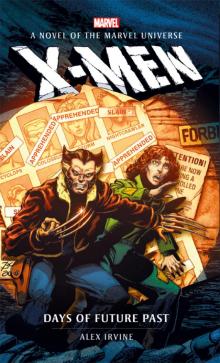 Marvel Novels--X-Men
Marvel Novels--X-Men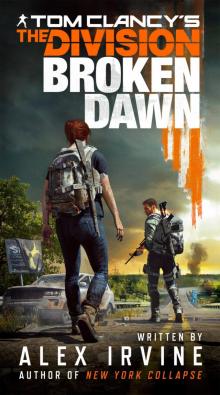 Tom Clancy's the Division
Tom Clancy's the Division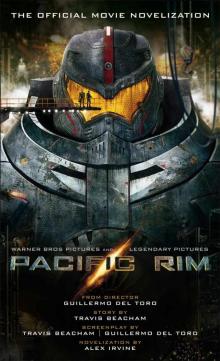 Pacific Rim: The Official Movie Novelization
Pacific Rim: The Official Movie Novelization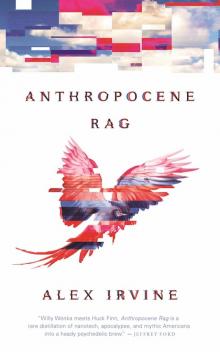 Anthropocene Rag
Anthropocene Rag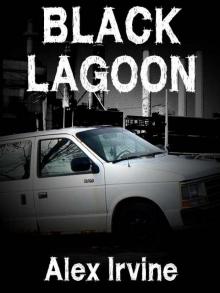 Black Lagoon
Black Lagoon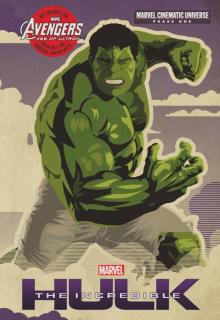 Phase One: The Incredible Hulk
Phase One: The Incredible Hulk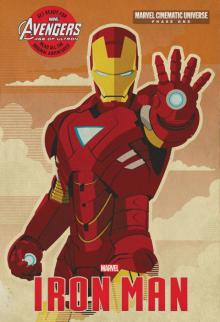 Phase One: Iron Man
Phase One: Iron Man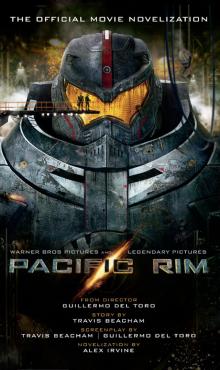 Pacific Rim
Pacific Rim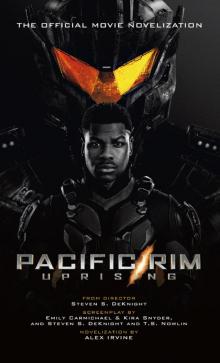 Pacific Rim Uprising--Official Movie Novelization
Pacific Rim Uprising--Official Movie Novelization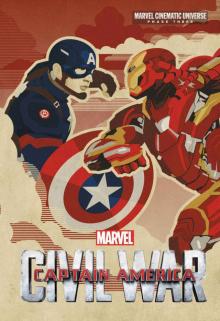 Phase Three: Marvel's Captain America: Civil War
Phase Three: Marvel's Captain America: Civil War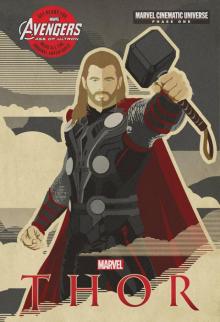 Phase One: Thor
Phase One: Thor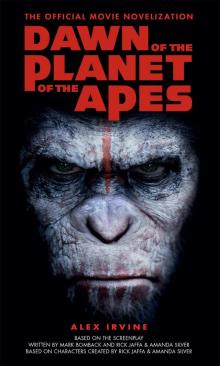 Dawn of the Planet of the Apes: The Official Movie Novelization
Dawn of the Planet of the Apes: The Official Movie Novelization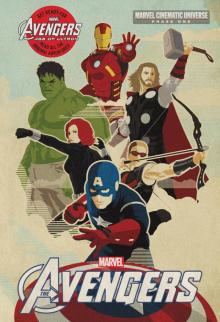 Phase One: Marvel's The Avengers
Phase One: Marvel's The Avengers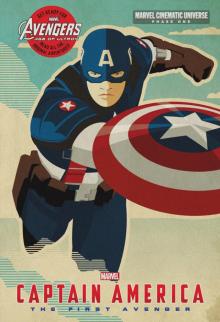 Phase One: Captain America
Phase One: Captain America Exiles
Exiles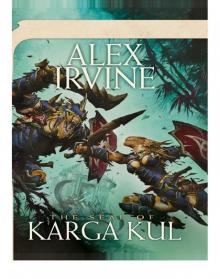 The Seal of Karga Kul: A Dungeons & Dragons Novel
The Seal of Karga Kul: A Dungeons & Dragons Novel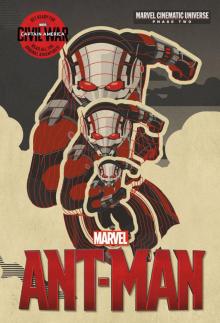 Marvel's Ant-Man - Phase Two
Marvel's Ant-Man - Phase Two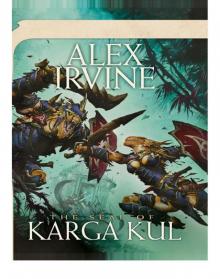 The seal of Karga Kul (dungeons and dragons)
The seal of Karga Kul (dungeons and dragons) Mare Ultima
Mare Ultima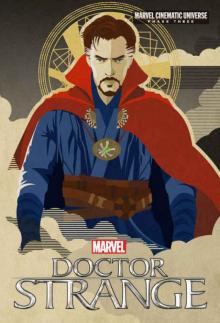 Phase Three: MARVEL's Doctor Strange
Phase Three: MARVEL's Doctor Strange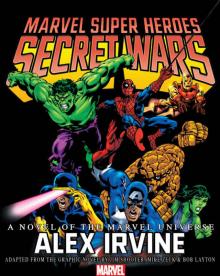 MARVEL SUPER HEROES SECRET WARS
MARVEL SUPER HEROES SECRET WARS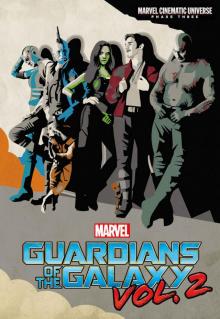 Phase Three: MARVEL's Guardians of the Galaxy Vol. 2
Phase Three: MARVEL's Guardians of the Galaxy Vol. 2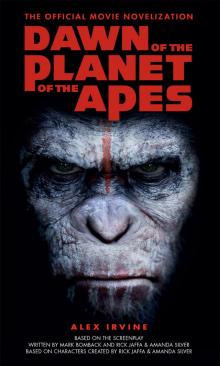 Dawn of the Planet of the Apes
Dawn of the Planet of the Apes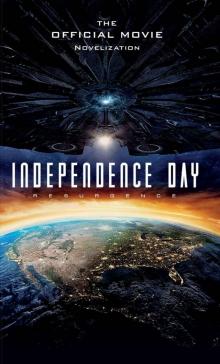 Independence Day: Resurgence: The Official Movie Novelization
Independence Day: Resurgence: The Official Movie Novelization